"FASTEN your seatbelt and open your window shade. We are landing soon," the captain blared his order. As I pushed my shade up, I took a final lingering look outside my window.
Vast peaceful farms stretched to the horizon. The idyllic scene belied the tragedy that had taken place several months earlier when the Malaysia Airlines (MAS) airplane, MH-17, was shot down here in July 2014 with the tragic loss of 298 lives.
As the plane began to touch down at the airport, I saw thick snow on the trees and roof tops. A large banner caught my eyes: "Welcome to Dnipropetrovsk". On one side of the runway was a long row of MIG-29 fighter jets ready for take-off, as pilots puffed away anxiously. On the other side was a long row of attack helicopter gunships, all fully loaded with machine guns ready.
Fully armed burly military guards were all around the airport. Their terse and tense manner painted a very different picture from the banner welcoming us. However, my initial sense of trepidation soon subsided when I saw the cheerful smiles of my friends, Professors Natalia Stukalo and Oleksii Dzhusov. Their friendly welcome warmed my heart in the freezing cold weather.
I'd been invited by Oles Honchar University to deliver some lectures. I was almost late for my lecture as my taxi driver grappled with daily name changes of roads and places.
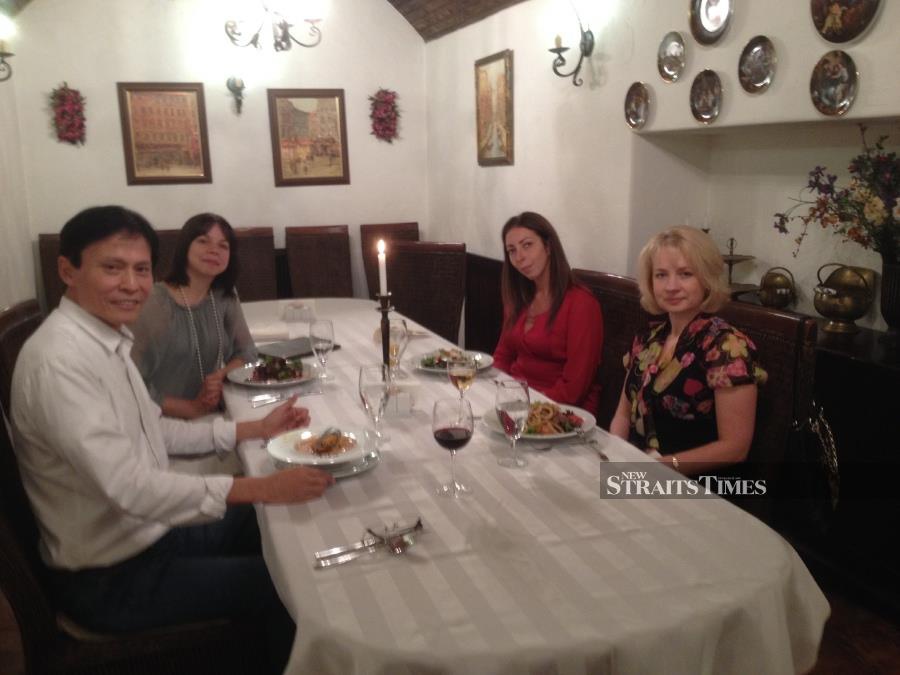
As part of de-Sovietisation, for instance, the main Karl Marx Boulevard had been renamed Dmytra Avenue. All statues of Marx, Stalin and Lenin were hurriedly torn down by local mobs throughout Ukraine. Even the city's name had been subsequently changed to Dnipro.
Ukraine was then going through the throes of a revolution and an intense war. There were long columns of tanks and armoured cars. Outside the city, bomb explosions and machine gun fire could be heard.
FROM LVIV TO KIEV TO KHARKIV TO ODESSA
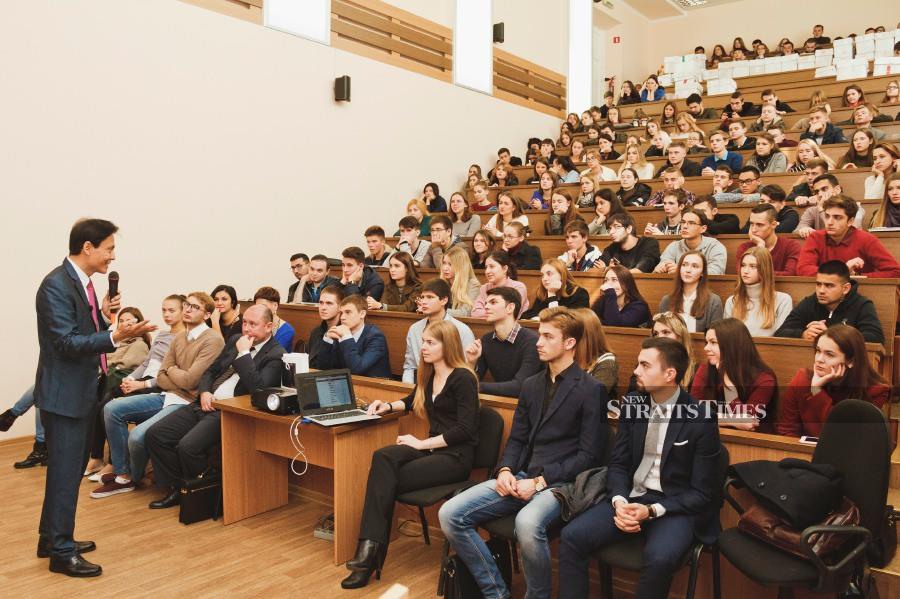
The week before, I'd been in Lviv and Kiev to conduct some seminars and TV interviews. The seminar held at its Ministry of Foreign Affairs Ministry headquarters was especially fruitful. In its capital Kiev, I stayed at Hotel Ukraina, with its unmistakable imperial feel, having been built during the Stalinist era for Soviet Generals.
My giant balcony overlooked Maidan square, the scene of the bloody revolution in February 2014. The mood of the people was distinctly sombre. I could feel the tension in the air and see the lamps of honour, dedicated to the martyrs, all around Maidan.
Before coming to Ukraine, I'd faced incessant questioning by my friends. Some exclaimed that I was crazy to even think of going. "Don't you know there's a war going on there?" some had incredulously pointed out.
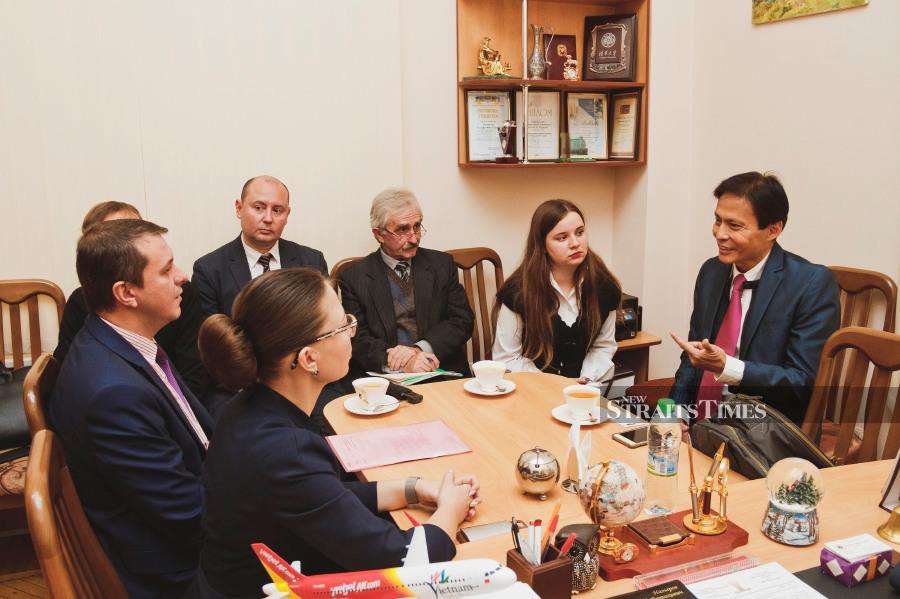
Despite the potential risks involved in my trip, I nevertheless took up the challenge and invitation by the honourable Minister Dmitri Senyk and Ambassador Nataliya Zhynkina. I felt that it was my duty to answer their call for help during their national crisis. To me, it was the epitome of what international friendship was all about.
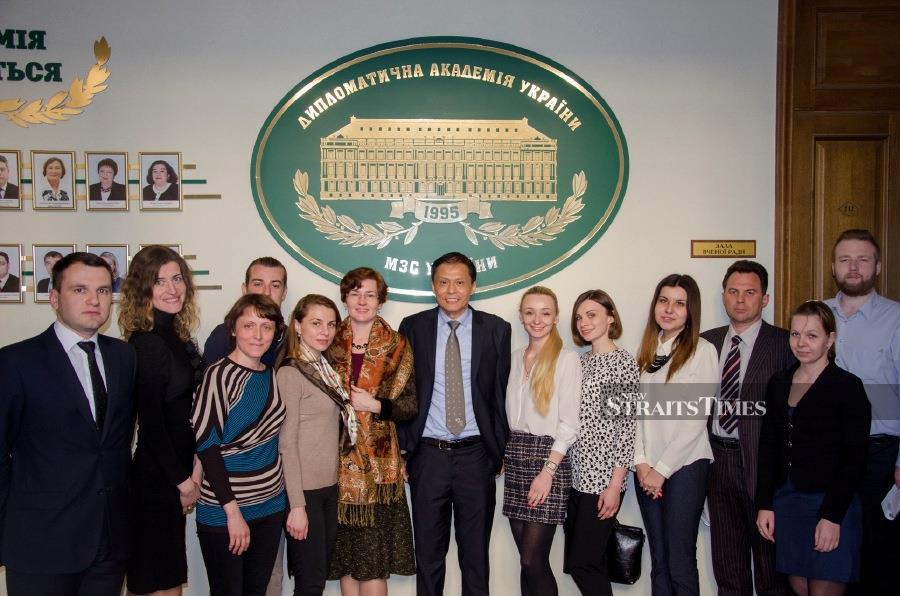
Ukraine is well-blessed with the beautiful Carparthian Mountain and Black Sea. It's also very rich culturally and intellectually. For instance, Kharkiv and Odessa National University boasts of several Nobel Prize scientists. I sincerely appreciated the warm hospitality of the Rector of Kharkiv, Prof Vil Bakirov, and Prof Sergey, Mihail, Irina, Lyudmilla and Fletcher.
BEAUTY OF KRAKOW AND TRAGEDY OF AUSCHWITZ
After my lecture tour in Ukraine, I took a train to Krakow, located in neighbouring Poland. I'd been invited by my friend, Professor Marcin, to lecture at Jagiellonian University, one of the oldest universities in the world.
Among its alumni is Copernicus, famous for his helio-centrism for which Galileo was forced to recant by the Pope. This reminds us of the heavy price for seeking and speaking the truth, exemplified by Socrates' drinking of hemlock.
After our lecture, my students brought me to visit their beautiful medieval city square. In 1238 AD, the Polish sentry at the watchtower rang the church bell to warn its residents of the approaching Mongolian army. However, sadly, the city was brutally sacked in the end.
As the Auschwitz concentration camp was nearby, I took the opportunity to learn about its tragic history. At its entrance was a quote by George Santanaya: "Those who do not remember the past are condemned to repeat it".
It was indeed heart rending to see the gas chambers and the skulls. Many of them were victims of the deadly experiments by the "Angel of Death", Dr Mengele.
It's truly a gruesome reminder of the atrocities committed by the Germans during the war. It underscores the importance of international friendship and understanding to avoid wars.
FINLAND — THE HAPPIEST COUNTRY ON EARTH
After my lectures and conference in Warsaw, I flew north to Helsinki. The Scandinavians have a different culture and character from other Europeans. What impressed me was their Social Democratic principles which show a genuine care for its people. Over the years, Finland has generously accepted many refugees despite not having played a role in colonising other countries.
As a Visiting Professor, it was as much for me to learn from and also to teach my colleagues and students. This cross-cultural understanding is the true essence of international friendship.
Besides the universities, I also visited some of its schools to learn more about its educational excellence. Interestingly, Finland is able to strike a fine balance between producing good Programme for International Student Assessment (PISA) test results and enjoying a relatively stress-free education system. Incidentally, Finland ranks top in the United Nation's (UN) World Happiness Report.
MOSCOW, KREMLIN, THE TSAR AND THE BOLSHEVIK REVOLUTION
After Finland, I flew over the Baltic Sea to Moscow for more lectures. My post-graduate students accompanied me to visit St Basil's Cathedral, Lenin's mausoleum and the nearby Kremlin at the sprawling Red Square.
When we went underground to their metro stations, I was surprised by their impressive palace-like design with beautiful artwork. These "Palaces for the People" reflect their egalitarian belief that the beauty of art should be enjoyed by the masses and not confined to the royals.
My students regaled me with the story of the bloody Bolshevik Revolution in October 1917, which saw the rise of Lenin and the civil war between the Red and White armies.
This resulted in the overthrow of Tsar Nicholas and the ruthless assassination of his family. Intrigued by this tragedy, I also visited St Petersburg and the Winter Palace to learn more about this sad episode in history.
GERMANY, THE ECONOMIC AND INTELLECTUAL POWERHOUSE
After St Petersburg, I flew south to Berlin, the capital of Germany. I took the opportunity to visit its famous Reichstag, Brandenburg Gate and the "Berlin Wall".
After my tour, I proceeded to Gottingen University which boasts of the biggest number of Nobel Prize scientists before the war. Among them were Gauss, Max Planck and Oppenheimer, the "Father of the Atomic Bomb". It's also renowned for sociologist Weber and Habermas.
Gauss was a mathematical genius. At the age of three, he could compute complex calculations. Until today, all their graduating PhD students in Mathematics would have to kiss his tomb stone.
After that, they would have to bring flowers and kiss the Ganseliesel, a poor princess in an old fairy tale, in the city square. My students confessed that they would rather kiss the princess than Gauss.
During dinner, I was heartened to hear from my professorial colleagues that Germany has fully atoned for its atrocities during the war. It had issued formal apologies and offered generous compensation to its victims. They also teach their students about the Holocaust and atrocities committed by the German army.
BEAUTIFUL PRAGUE AND ITS ASIAN STUDIES CENTRE
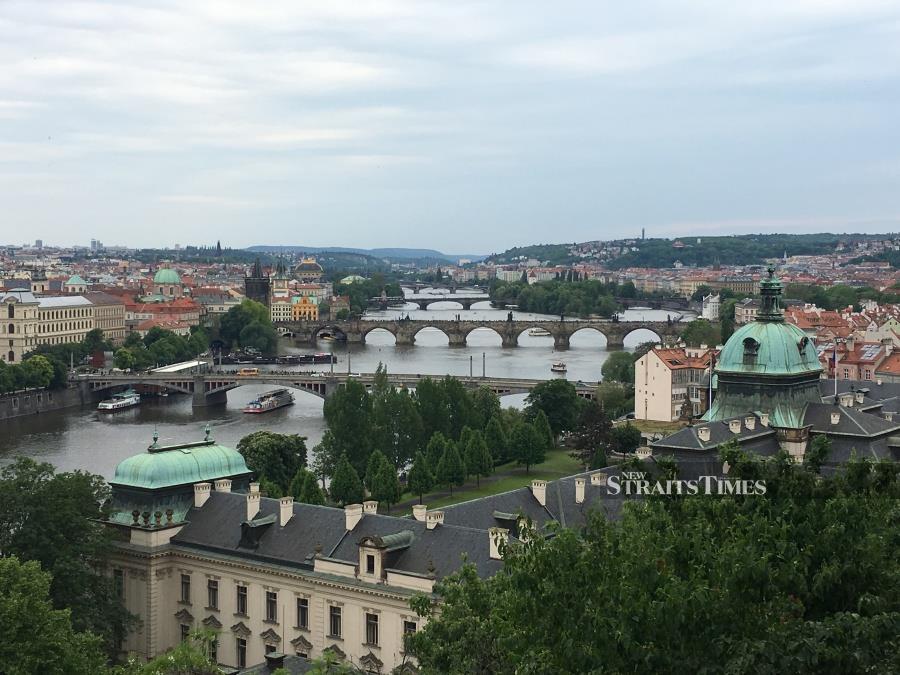
After Germany, my next destination was Prague, the stunningly beautiful capital city of Czech Republic. Prague University is the most reputable university in Central Europe. I especially enjoyed the warm company of Professors Jan Becka, Jan Hornat and Rudolph Furst.
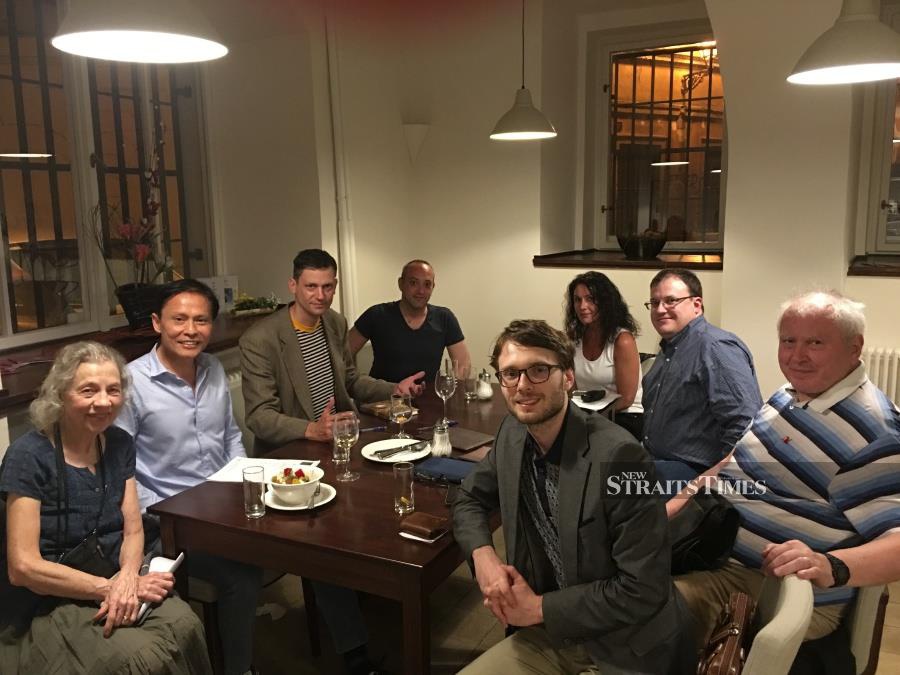
Besides teaching, I was invited to deliver a speech in conjunction with the opening of their Asian Studies Centre. It was well attended by members of the academia, mass media and diplomatic community. They raised the question about the comfort women and controversial visits to the Yasukuni shrine in Tokyo made by Japanese leaders.
Besides the Rape of Nanking and other cities, Japan's infamous "Unit 731" conducted heinous human and bio-terror experiments on a much larger scale than Dr Mengele. However, Japan has neither officially apologised nor made any compensation.
To seek closure and build trust, German Chancellor Angela Merkel had urged Japan to learn from the example of Germany in properly atoning for its crimes and atrocities. As a Visiting Professor, I conveyed our Asian perspectives and expressed my hope for a lasting peace, friendship and economic development
BUDAPEST — DINNER WITH PROFESSOR BUDA NEXT TO BUDA CASTLE
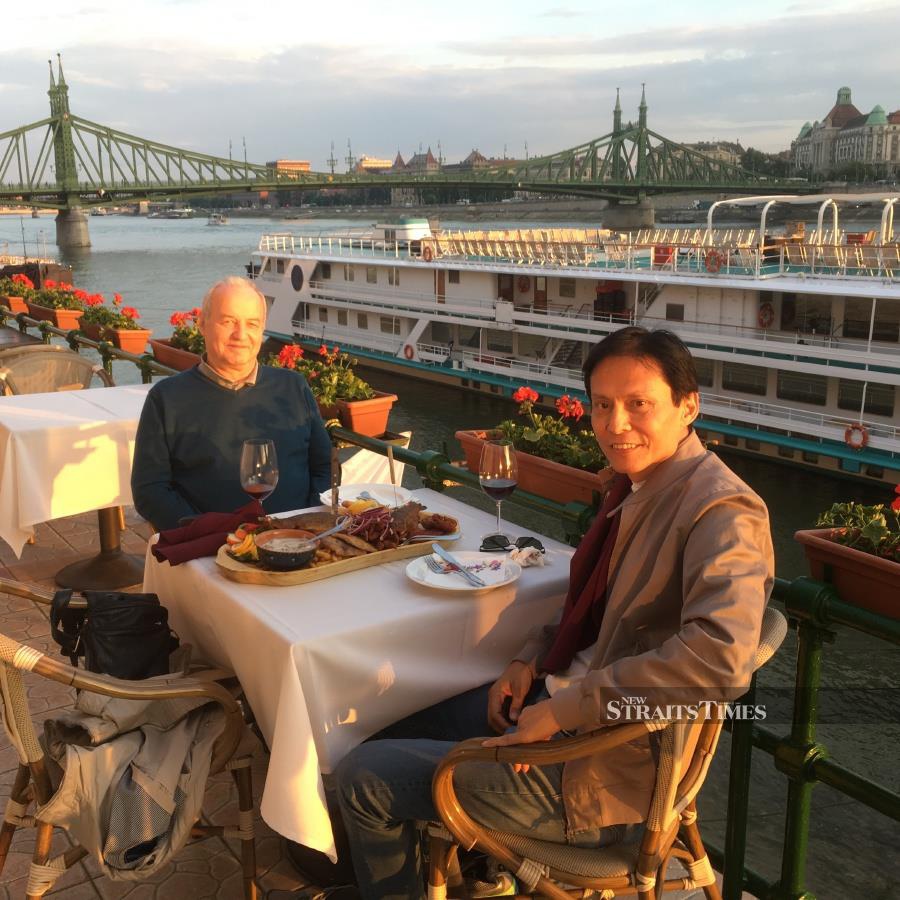
After Prague, I continued on to Budapest, the capital city of Hungary. Overlooking the Danube River is the Buda Castle. It's a beautiful United Nations Educational, Scientific and Cultural Organisation (Unesco) heritage site and many movies have been filmed there.
After our lectures, Professor Buda treated me to a wonderful dinner on a cruise along the Danube. It was a cool, breezy evening. During dinner, he regaled me with his stories as a member of the UN Peacekeeping force during the Vietnam War in 1972.
The following year, Professor Buda visited me while I was teaching in Vietnam. It was a nostalgic trip for him as it had been 50 years since the end of the Vietnam War.
Although both his hairline and the skyline have changed much, surprisingly, he managed to find his old bar and its owners again. As he retraced his journey in Vietnam, it brought back special memories and some tears to him.
VIETNAM — PHOENIX RISING FROM THE ASHES OF WAR
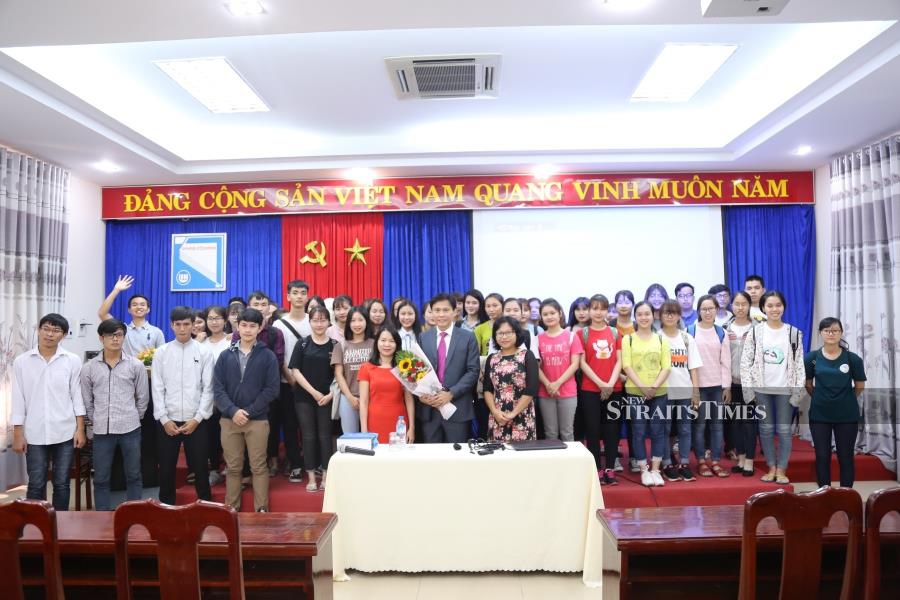
After defeating the French at Dien Bien Phu in 1954, Vietnam continued its war against the Americans until the fall of Saigon in 1975. It had suffered terribly, thanks to the devastating effects of Agent Orange and Napalm bombs used by the Americans.
The Vietnamese people are generally resourceful and resilient. After some initial struggles, the country is now a roaring tiger economy. In Hanoi, my students would pray to Confucius at the Temple of Literature before their final examination.
Without fail, Professor Tran, Vo and Van would bring me to experience their delicious cuisine and drinks. The Vietnamese would boast about their homemade wine, prepared by soaking a king cobra and some white mice in a big jar of special alcoholic herbal concoction.
It is believed to make one strong and young again. Professor Thanh challenged me to drink some of his grandfather's "special wine". After one gulp, I had to surrender. Let's just say its taste was unforgettable.
Besides its addictive coffee culture, Vietnam boasts of a strong karaoke culture. One could hear loud singing everywhere throughout the day and night. They sing happily at weddings and even at funerals too.
With a constant flow of music, coffee and alcohol, it's little wonder that Vietnam ranks among the happiest countries in the world. The friendly folks in the Mekong delta, especially, are the happiest.
CHINA — AWAKENING OF AN ANCIENT CIVILISATION
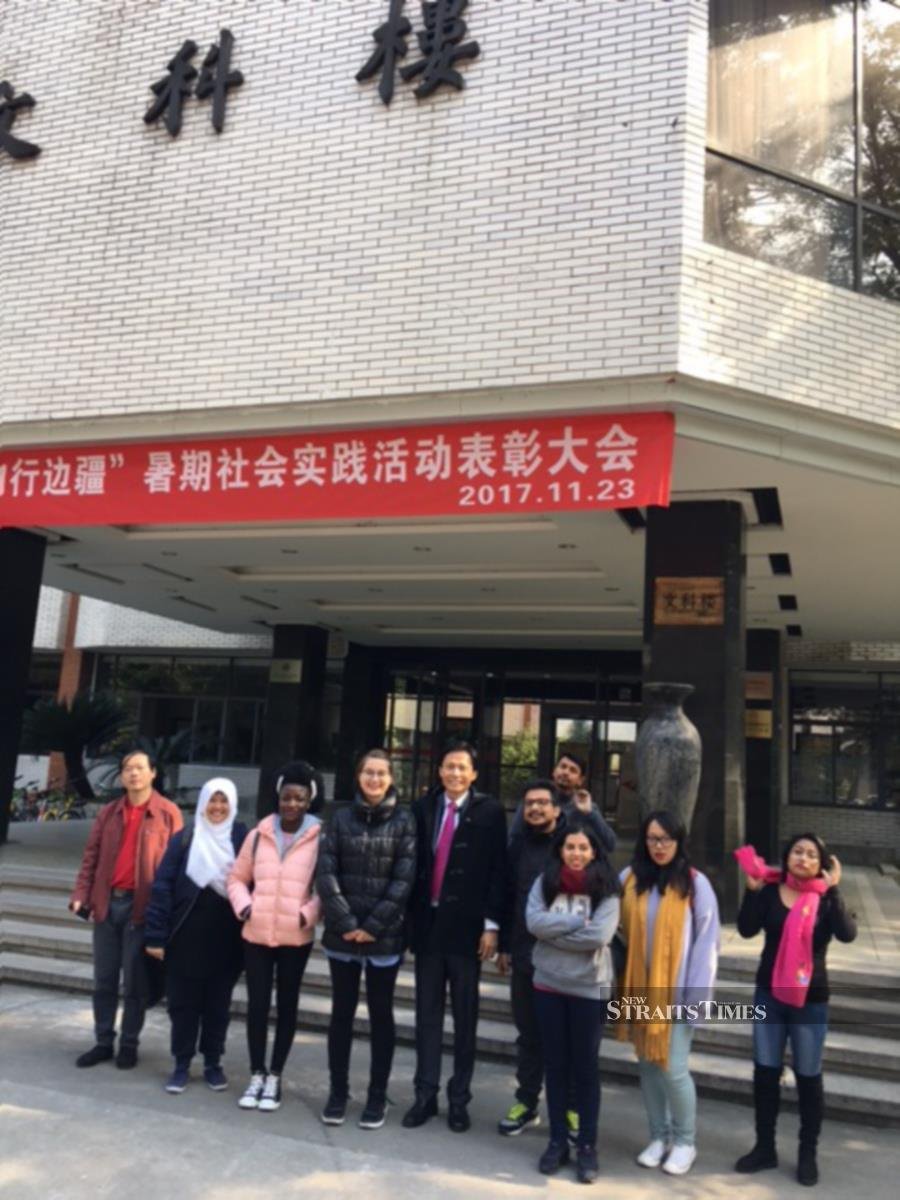
Before visiting China, my mind had been filled with images of corruption, pollution and degradation propagated by the world's media. Eager to learn the truth, I accepted the invitation to be Visiting Professor to the renowned Sichuan University in Chengdu.
After our lectures, my post-graduate students invited me for lunch and showed me around their city. It was late autumn and the air was cool and clear. The golden gingko trees added a beautiful shine to the city. There was little pollution and traffic was smooth-flowing.
My students brought me to visit the historic Liu Bei tomb and Zhang Fei Temple. They regaled me with stories from the Romance of Three Kingdoms 2,000 years ago.
I was duly impressed by their grasp of history. Being English educated, I regretted not knowing enough Chinese to fully appreciate its rich culture and long history.
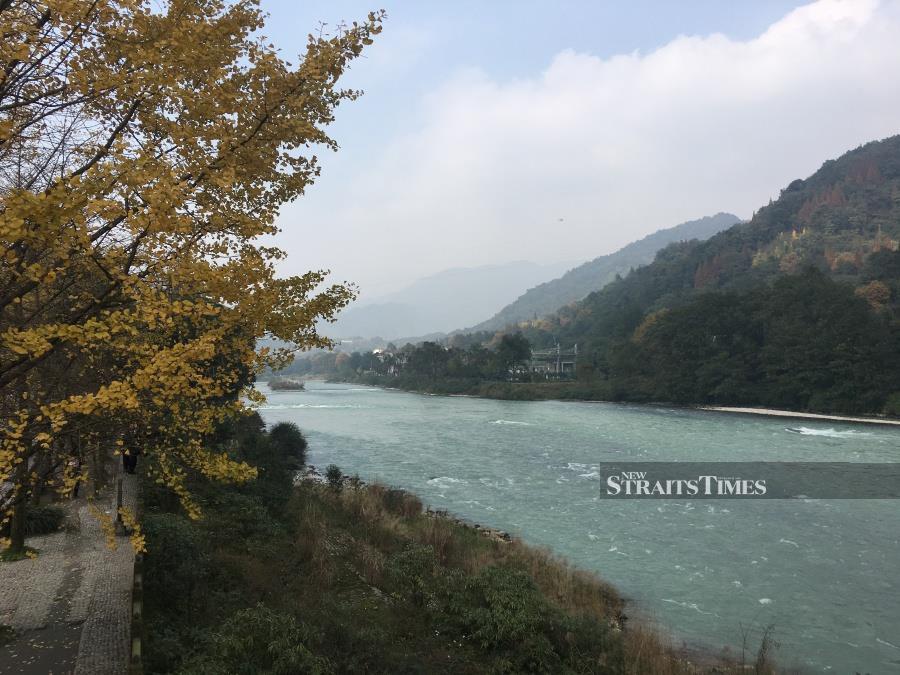
They also brought me to visit their world-famous panda sanctuary and Dujiangyan, an impressive Unesco heritage site dating back to 256 BC.
Besides enjoying the tour, I learnt something new from some of my students. Being ethnic minorities, they enjoyed extra points in the competitive college entrance examination and some discounts in their school fees too.
The ethnic minorities were also exempted from China's harsh "One Child policy", resulting in their strong population increase. Notably, both the lifespan and population of the Uighurs in Xinjiang have more than doubled in recent decades. This debunked the genocide theory propagated by some western media.
Besides Chengdu, I also visited Beijing. Some of the students showed me the ruins of their Imperial Summer Palace. It was brutally ransacked by the British and French armies during the Opium War in 1860. Sadly, most of its inhabitants were killed and all the priceless antiques were looted by the invading armies.
Today, many of these antiques can be found in the museums and mansions in London, Paris and New York. Although my students were saddened by this tragedy, what I found admirable was the fact that they harboured no sense of revenge or vindictiveness.
After a century of humiliation, China is finally re-emerging as an economic powerhouse. Some Western media have claimed that China is trying to colonise the world today. In my interactions with its people, there was never any hint of such hegemonic ambition.
If China had intentions to conquer the world, it would have done so during the Ming Dynasty when Admiral Zheng sailed around most of the world with his mighty fleet. Instead, the Chinese Emperor married off his beloved princess Hang Li Po to Sultan Mansur Shah of Melaka in the 15th century.
The wise and old ex-prime minister of Malaysia Tun Dr Mahathir Mohamad had once reminded us: "We always say, we have had China as a neighbour for 2,000 years, we were never conquered by them. But the Europeans came in 1509, in two years, they conquered Malaysia."
China has successfully uplifted 800 million of its people from poverty through sheer diligence and self-sacrifice. It has also been playing a responsible international role.
Despite the US withdrawal earlier, China has been strongly supporting the World Climate Treaty and the UN Peacekeeping force. Instead of vaccine-hoarding like some western countries, China has been sending huge quantities of vaccines and medical supplies to other countries to help combat the Covid-19 pandemic. However, the western media criticised China's earnest efforts as vaccine diplomacy.
To promote international friendship, we need to make an honest effort to seek the truth, build trust and understanding. This is especially crucial given the tension brewing between the two super-powers in the world today.
As Professor Jeffrey Sachs (UN Special Ambassador) lamented, the US trade war, tech war and sanctions against China hurt not only China but the international economy too.
Having lived and worked in the West, I have enjoyed its personal liberty, social diversity and democratic plurality. However, there are also aspects of Eastern culture which are equally important, such as public safety, social stability and personal responsibility.
Compared with Western nations, many East Asian countries have controlled the Covid-19 pandemic better, thanks to better social discipline and public order. The rampant chaos and tragic anti-Asian hate crimes in the West show that excessive personal liberty can bring more harm than good.
FOR THE SAKE OF HUMANITY
We need to accept and respect the fact that different countries have different cultures and ways of life. No country should impose its system and ideology on others. This rich historical complexity and cultural diversity are what make our world an interesting one.
In the face of serious problems such as Covid-19 and climate change, all countries should unite and cooperate to tackle these common challenges together.
With time running out, it is imperative that our world leaders show the necessary courage and wisdom to work together to overcome these existential challenges for the sake of humanity.
Gary Lit Ying Loong is a retired academic from Nanyang Technological University (NTU), Singapore. He's presently a Visiting Professor to some universities in Asia and Europe. Reach him at [email protected].


